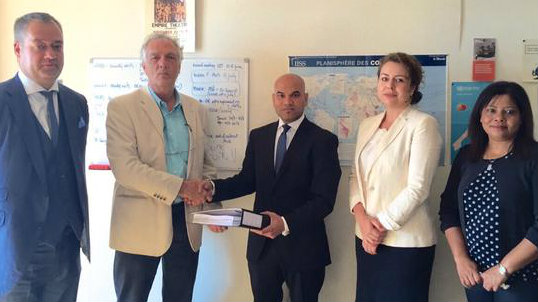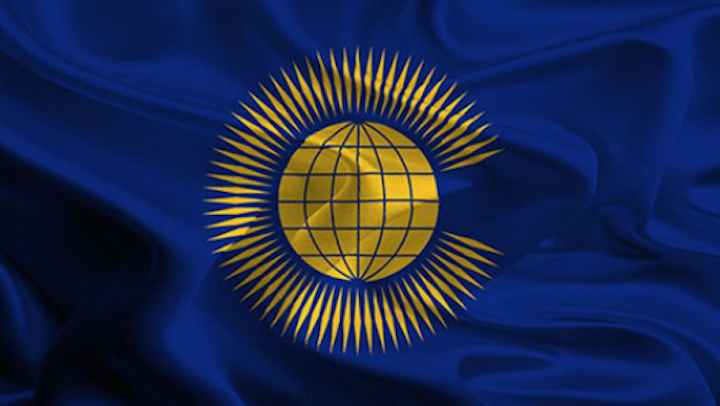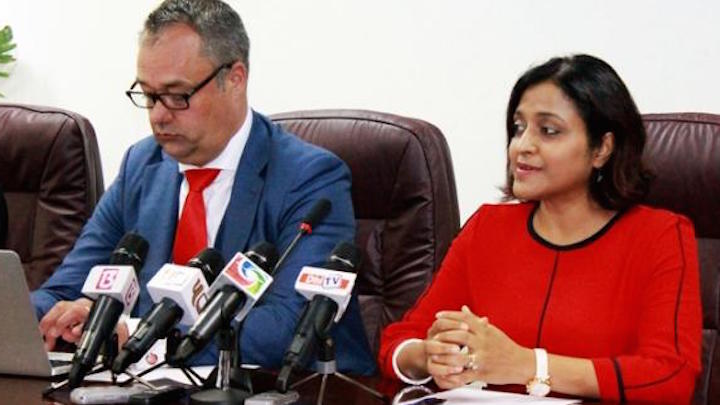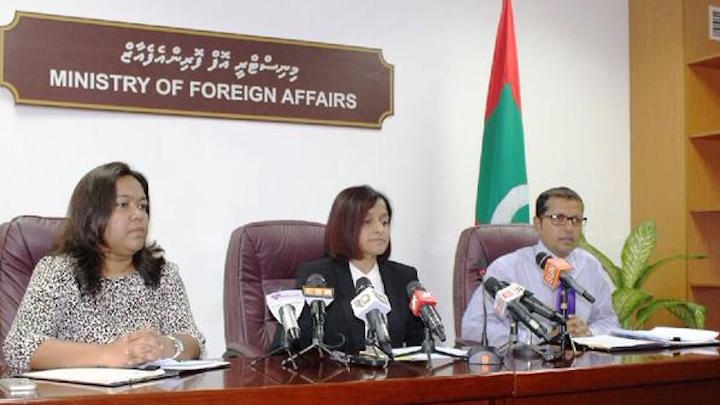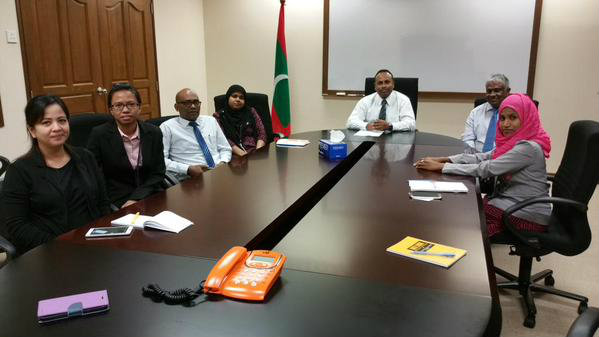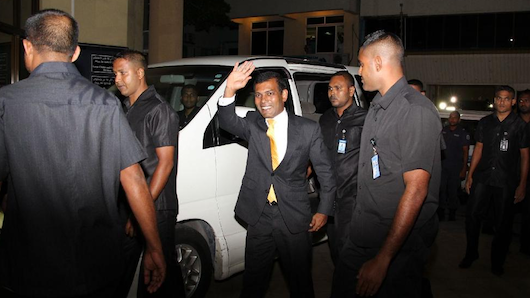The Maldivian government, responding to the UN working group on arbitrary detention today, contended that a terrorism conviction against former president Mohamed Nasheed was not politically motivated and said allegations over lack of due process are factually incorrect.
Nasheed’s family had lodged a petition with the UN in April requesting a judgment declaring the opposition leader’s detention illegal and arbitrary. The government was asked to respond before the first week of July.
“Mr Nasheed has not been a victim of a politicised process. He has been properly charged and faced trial for an extremely serious offence, one that was aimed at interfering with an independent judiciary and circumventing the rule of law. The law cannot be applied selectively,” said Ahmed Shiaan, the ambassador of the Maldives to Belgium.
Nasheed was sentenced to 13 years in jail over the military’s detention of the criminal court chief judge Abdulla Mohamed in January 2012.
Shiaan and Toby Cadman, a barrister and partner at London-based Omnia Strategy, delivered the response to the UN in Geneva today.
Cadman said any lapses in due process were not “so serious individually or collectively so as to render the entirety of the proceedings a flagrant denial of justice. And thus render the former president’s detention arbitrary. Moreover, it is important to note that any of the irregularities, actual or perceived, are capable of being addressed on appeal.”
The 19-day trial was criticized by foreign governments and UN rights experts. The UK Prime Minister David Cameron, the EU parliament and high profile US senators have called for his immediate release.
Omnia Strategy, a London-based law firm chaired by Cherie Blair, the wife of former UK Prime Minister Tony Blair, was employed for an undisclosed fee to write the response.
Nasheed was transferred to house arrest in late-June in exchange for opposition backing on a constitutional amendment that will allow President Abdulla Yameen to replace his deputy. Talks are now ongoing between the Nasheed’s Maldivian Democratic Party and the government.
Abduction
Speaking to the press in Geneva, Shiaan contended Nasheed’s petition to the UN was an attempt to divert attention from his “abduction” of a sitting criminal court judge.
Nasheed’s lawyers have argued that the trial was rushed and that the criminal court had withheld trial records to block an appeal. Lawyers have also raised concern over the denial of legal counsel at some hearings.
Shiaan, however, said the allegations are factually incorrect and a mischaracterization of reality.
Cadman stressed the trial was “conducted under a process recognized under national and international law” and “not arbitrary by any standards.”
“We are confident they will dismiss the communication by the former president in its entirety,” he said.
Cadman insisted Nasheed could still appeal his conviction at the High Court and denied that the criminal court had deliberately withheld trial records to block an appeal. Nasheed and his lawyers had refused to sign the records, he contended.
Admitting that Nasheed was not given legal representation at the first trial, Cadman claimed the process was legal under Maldivian law. The former president’s lawyers had later boycotted hearings, he said and suggested Nasheed refused to make use of opportunities provided by the criminal court to appoint new counsel.
Nasheed was brought to trial a day after his arrest. He wasn’t allowed legal counsel at first hearing with the criminal court saying it’s regulations requires three days to register lawyers for defendants. Nasheed’s lawyers later recused themselves claiming they could not mount a proper defense with the criminal court rushing the process.
Hearings were often held late at night. The verdict was delivered at 11:15pm.
But Cadman today insisted the trial was not rushed as no new evidence had been submitted against Nasheed.
All the materials had been provided in 2012 when Nasheed was first charged with ordering an arbitrary detention of the judge. “The only difference was the qualification of the offence under national law,” Cadman argued.
While the first offence only carries a few months in prison, the latter charges of terrorism carry at least ten years in prison. Nasheed’s lawyers argued they required more time to weigh the evidence in light of the harsher charges.
The opposition leader contends the criminal court had blocked him from filing an appeal within the shortened 10-day appeal period. The new provisions, dictated by the Supreme Court shortly before Nasheed’s trial commenced, are silent on accepting late appeals, his lawyers have said.
The appellate court, citing lateness, refused to accept an appeal of a murder acquittal filed by the Prosecutor General’s Office in June. The PG office told Minivan News the delay was caused by the criminal court’s failure to provide a record of trial proceedings within the 10-day appeal period.
A ruling by the UN working group is expected in September or October, Nasheed’s lawyers have said.
